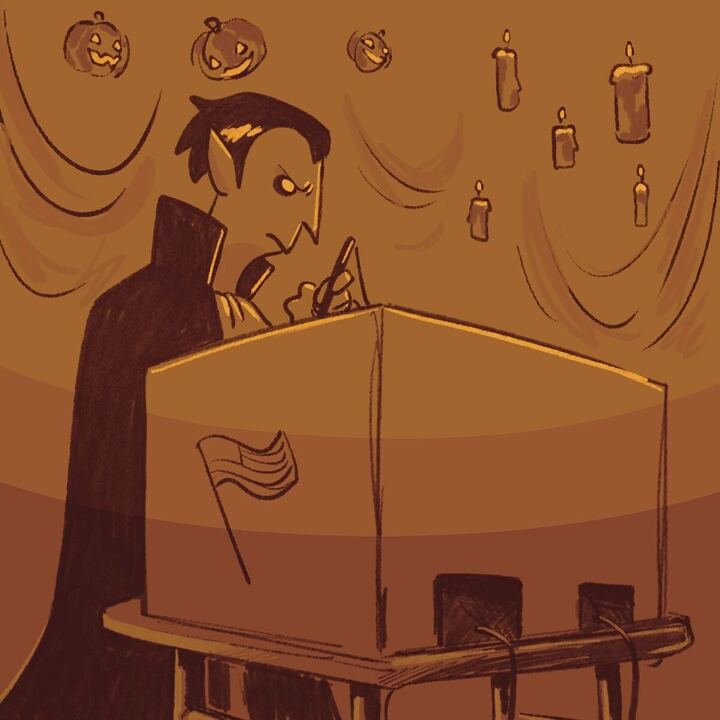Scene
First time absentee voting: less fanfare, same impact

Manuel Lopez | Staff Illustrator
While some WashU students flocked to the red, white, and blue decked polling locations on Nov. 5, hundreds of others carried out their slightly-less-ceremonious ballot submissions through absentee voting in the preceding weeks. For many student voters, this election served as their first opportunity to cast a vote for their chosen presidential candidate, alongside the other nominees running in various local and congressional races. In one of the most contentious presidential races the United States has seen in decades, first-time WashU voters who sent their vote by mail expressed mixed feelings toward their absentee voter status.
First-year Alex Levy discussed his feelings on submitting his absentee ballot to his home state of Maryland.
“It wasn’t too exciting knowing I was voting in a state where the majority is already decided, because I didn’t feel as if I was contributing to something more,” Levy said.
Voters registered in swing states — such as Wisconsin, Pennsylvania, Michigan, and Georgia — held a powerful vote this election, as the precarious leanings of each state could potentially shift the country’s political climate. So, while Levy and other students hailing from traditionally blue or traditionally red states found their voting experience less impactful, others coming from mixed-party regions had a different perspective on the weight their individual vote carried.
Josh Greenberg, a first-year from Philadelphia, Pennsylvania, shared his gratitude for absentee voting.
“Being from Pennsylvania, I feel like my vote becomes even more important. I am not the most knowledgeable on this subject, but I did submit a mail-in ballot — something I’m especially grateful for in this election, as I wouldn’t have any say in the competitive Pennsylvania race without it,” Greenberg said.
One concern that some absentee voters expressed was their confusion with many of the ballot items.
“I didn’t know most of the names on the ballot … it was actually quite discouraging; I kept putting off filling out my ballot because I just didn’t know what half the stuff was,” Levy said.
Incomplete knowledge of the various nominees and measures listed on the ballot appeared to be a common theme amongst rookie voters.
First-year Isabel Cowart, another first-time voter who cast her ballot early and in-person in New York over Fall Break, expressed similar concerns over her lack of familiarity with many of the ballot names.
“I called my mom with so many questions about which boxes to check,” Cowart said.
Cowart also expressed that casting her ballot in-person was impactful, something she wasn’t sure would come across in the absentee voting experience.
“It felt exciting when I put my ballot in the box. I felt like I was making a difference, and I don’t know if someone would get that from an absentee ballot, because going to the Board of Elections was really empowering for me,” Cowart said.
First-year Miles LaTourrette-Ghez, a Los Angeles resident, explained his somewhat anticlimactic feeling about sending his vote in the mail.
“I knew filling out an absentee ballot wouldn’t be as exciting as voting at the polls,” he said. “But I’m just glad I get to be a part of such an important election.”
The 2024 election marks a pivotal moment for the country, as well as for the young WashU voters who will be exercising this civic duty for the first time. The heightened political fervor present on campus these past few weeks has served as a constant undercurrent of campus life, and tempered excitement surrounding absentee voting has not hindered students’ commitment to submitting their ballot.
